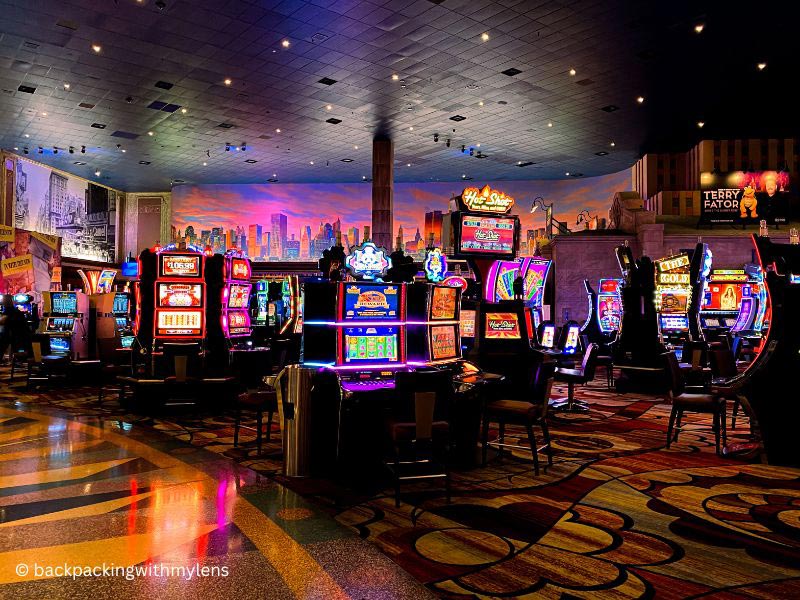
Casino experiences have long captured the fascination of humans around the world, becoming an integral part of both entertainment and tradition. Nhà Cái Uy Tín From the glimmering lights of Nevada to the engaging experience of internet gambling, these games evoke thrill, uncertainty, and sometimes even a sense of remembrance. They are more than simply hobbies; they have woven themselves into the tapestry of our lives, influencing various aspects from movies and songs to fashion and literature.
The appeal of casino games transcends the gambling aspect, tapping into wider themes of luck, possibility, and human behavior. As players assemble around a gaming table or spin the roulette wheel, they engage in an ancient ritual that connects with our collective desire for adventure and instability. This obsession has led to the growth of numerous references in films, songs, and video games, showcasing how intensely entrenched these activities are in popular culture. Whether it is the high-stakes tension of a classic robbery film or the colorful nightlife portrayed in recordings, casino games have established a substantial niche that reflects our connection with reward.
Historical Impact of Casino Activities
Casino games have played a key role in social contexts throughout history. Originating from old civilizations, forms of chance were often connected to rituals or events. For example, early forms of these activities can be traced back to historic Chinese and the Romans, where dice games and betting on outcomes were popular pastimes. These games not only functioned as entertainment but also as methods of social interaction, facilitating connections among individuals within communities.
As cultures evolved, so did the sophistication and organization of gambling games. The creation of formal casinos in the 17th century, particularly in the Italian region, marked a major shift in how games were viewed and organized. With specific spaces for gambling, the casino became a community center where people from various backgrounds gathered. This evolution contributed to the legitimization of gambling, transforming it from a mere pastime into an established industry that shaped the economy and policy.
The impact of casino activities on popular culture cannot be understated. As they were brought into the limelight in literature and movies, games such as Texas Hold’em and 21 became icons of chance, chance, and strategy. Iconic figures and stories have emerged around these activities, illustrating societal views towards luck, wealth, and vice. This fascination with casino games has infiltrated various forms of entertainment, solidifying their status in the collective consciousness and linking them to broader cultural stories throughout the ages.
Depiction of Gambling Games in Media
Casino games have long been a popular theme in different types of entertainment, reflecting both the fascination and complexities of the world of gambling. Movies such as Ocean’s Eleven and Casino Royal portray individuals who navigate dangerous scenarios, showcasing not only the allure of the gambling environment but also the methods and choices that come with playing popular games like poker and 21. These movies often dramatize the thrill of winning and the potential results of losing, encapsulating the risks involved in gambling.
Television shows have also explored the universe of casino games, often integrating them into the storyline as a backdrop for story progression and drama. Shows like Las Vegas depict the lives of casino workers and casino-goers, highlighting the dynamic, often tumultuous energy of the casino floor. Reality shows featuring intense betting contests further emphasize the appeal of casino games, drawing viewers into the excitement and planning involved in each session. Through these representations, media not only entertains but also sparks conversations about luck, skill, and the nature of chance.
Video games have increasingly incorporated casino games into their design, allowing players to recreate the experience of betting without monetary loss. Games within the realm of online gaming often include virtual slots, online poker, and other casino favorites, creating an interactive experience that mirrors traditional gambling. These virtual portrayals make casino games accessible to a broad demographic, appealing to both gamblers and those who enjoy the excitement of virtual experiences. As a outcome, the representation of gambling activities in media continues to shape public perception and importance, highlighting their function in entertainment and the cultural landscape.
Effect of Casino Games on Society
Gambling activities have a meaningful impact on society, influencing various facets of societal norms and social behavior. They often serve as a venue for social interaction, where people come together to experience a common activity. Casino trips with friends or trips to casinos become social activities that foster connections and create shared moments. This communal aspect enhances the fun value of casino games, making them a favored choice for festivities and leisure activities.
Moreover, casino games have been portrayed in countless films, TV series, and literature, influencing views and attitudes towards gambling and betting. Icons like James Bond playing baccarat or the intense poker scenes in films have embedded these games in the shared imagination. This depiction often idealizes the lifestyle associated with gambling, drawing in new players and influencing trends in both style and behavior. These portrayals can spark curiosity and lead to a more profound exploration of the intricacies of gambling.
However, there are also adverse consequences linked to the popularity of gambling activities. The allure of quick monetary gain can lead to gambling addiction and economic troubles for some people. Society must contend with these issues, promoting responsible gambling and awareness of the dangers involved. Finding a balance between the fun aspect of casino games with the potential for harm is vital to ensure that they remain a beneficial aspect of our societal fabric.